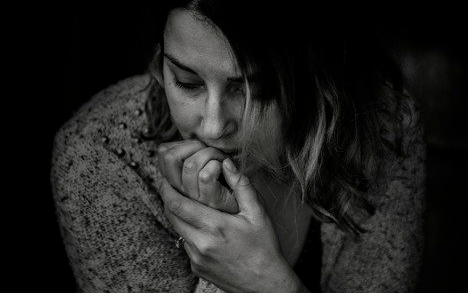
California Sexual Abuse Lawyers for Survivors
Our attorneys focus on holding institutions responsible for allowing abuse to occur. We typically do not handle matters involving abuse by a personal acquaintance, family member, or other individual outside of an organization.
Were you or a loved one sexually abused? If so, you understand the devastating consequences of being victimized. You deserve justice. At Boucher LLP, our California sexual abuse attorneys help survivors by holding accountable the institutions that failed to protect survivors from sexual abuse by its employees, volunteers, or other affiliates in civil lawsuits.
If you’re considering filing a sexual abuse lawsuit, you may feel anxious about the process and wonder if it’s worth the stress. You’ve come to the right place—our law firm has extensive experience with these types of abuse cases.
Our compassionate California sexual abuse attorneys will advocate for your rights, work to protect your privacy, and do our best to minimize the stress of litigation.
California Sex Abuse Statistics
Sexual abuse impacts too many lives across the country, but in California, the statistics are even more tragic. A study by the Center for Gender Equity and Health (GEH) at the University of California San Diego School of Medicine and the nonprofit organization California Coalition Against Sexual Assault (CALCASA) found that in California, reported sexual harassment incidents are 5% higher for women and 10% higher for men than the national average.
Here are more sexual abuse statistics compiled by the California Department of Justice:
- Over 90% of child victims know their offender;
- Children often wait years or decades before telling anyone about the abuse;
- Most sex abusers are males, but females also can be sex abusers; and
- Only 2-8% of rape reports are false.
Though a common occurrence, every instance of sexual abuse is a tragedy that harms the victim for years to come. Our California sexual abuse attorneys want to prevent others from being victimized by making the responsible institution pay for failing to protect you.

Types of Sexual Abuse
Sexual abuse occurs when someone touches another’s body, particularly the genitals, buttocks, or breasts, without consent. However, sexual abuse does not have to use physical touch—it can also involve words or images.
Common types of sexual abuse include:
- Unwanted sexual advances,
- Distributing explicit photos of someone without their permission,
- Exposing genitals to someone,
- Forcing someone to see pornographic material,
- Performing unwanted oral sex on someone,
- Touching someone’s genitals, and
- Sexually penetrating someone without consent.
These acts require some intent. For instance, if someone’s arm accidentally brushes against your breast on a crowded plane, that’s not abusive. However, in the same setting, if another passenger intentionally gropes you, that is abusive and you may have a civil claim for sexual abuse.
Who Are Sexual Abusers?
Sexual abuse occurs in many settings, from homes to schools and churches to places of employment. Sadly, trusted adults such as family members, priests, and teachers may abuse children. Other victims may be abused by domestic partners or friends.
When organizations fail to condemn such behavior or take action in response to reports or complaints, it can worsen the resulting trauma and harm. In some cases, organizations may even attempt to cover up sexual abuse, leading to a culture of secrecy and shame that makes it difficult for survivors to come forward and seek justice.
To prevent such incidents, organizations must take proactive steps to prevent sexual abuse from occurring in the first place. Reasonable actions include:
- Implementing and following strict policies for hiring and disciplining employees, and
- Providing training and education to staff and volunteers on how to identify and prevent sexual abuse.
Failure to meet this duty may result in potential legal liability for the harm caused to survivors.
Our California sexual abuse lawyers aren’t afraid to bring trusted institutions and respected community members to court, if wrongdoing has occurred.
No one is above the law, and every sexual abuse survivor deserves justice. We know it takes courage to confront your abuser, and we’ll advocate and be by your side throughout the entire legal process.
What Should You Do If You Have Been Sexually Abused in California?
If you have been sexually abused, you should contact a skilled California sexual abuse lawyer. An experienced attorney can guide you through your legal options for filing a civil lawsuit against the institution responsible for your abuse.
It’s a good idea to file a police report and immediately seek medical treatment at the time of the assault. If you have a police report or medical records, please bring them when you meet with your attorney.
However, even if you do not have police or medical records, we may be able to file a successful sexual abuse lawsuit on your behalf. Our sexual abuse attorneys in California will work with you to evaluate your claim and gather all the evidence you will need.
What’s the Difference Between Criminal Charges and a Sexual Abuse Lawsuit?
Criminal prosecution seeks to punish the offender by taking away their freedom and putting them in prison. By doing so, you can protect others from suffering abuse, but you gain nothing financially.
A criminal conviction requires the prosecutor to prove that the accused is guilty beyond a reasonable doubt, which can be difficult, especially in circumstances with no witnesses to the assault as is often the case.
Whether or not your offender faces criminal charges, you may still be able to file a sexual abuse lawsuit. A civil lawsuit seeks compensation for your harm and trauma. This money can help you take positive steps in life to help you heal from the abuse.
A civil lawsuit has a lower burden of proof, meaning that even if your abuser was acquitted in a criminal trial, you may be able to still bring a successful civil lawsuit. In civil court, you need to prove that the defendant “more likely than not” abused you.
How Do We Protect Your Privacy?
Often times, survivors of sexual abuse are concerned about their privacy when filing a lawsuit. We understand and want to ensure you know that everything you share with our attorneys is completely confidential—we will not share your personal information without your consent during our investigation.
We understand that these cases are highly sensitive, and we do everything we can to protect your privacy, including these options:
- You can file your complaint under a pseudonym;
- The defense can’t conduct discovery on your sexual history without a court order;
- The defense is limited in what evidence of your sexual history they can mention at trial;
- Evidence of a child’s consent is inadmissible at trial;
- You can request time limits or other restrictions on depositions;
- We place limits on the scope of your mental examination; and
- We keep settlement details confidential.
If you have any concerns about privacy in a sexual abuse lawsuit, please let our attorneys know. We will do our best to make this difficult process as easy as possible for you, and we can explore every possible avenue for protecting you and your privacy.
Contact an Experienced California Sexual Abuse Lawyer
Sexual abuse survivors may struggle physically and emotionally for years. Filing a lawsuit against the responsible organization and recovering compensation can help with your healing process. Money can never make up for the harm you suffered, but it can help you take your next step toward recovery.
Our attorneys have extensive experience fighting for survivors of abuse. In the past five years, we have recovered over $500 million for our clients, and in 2007, founding partner Ray Boucher secured a $660 million settlement for survivors of childhood sexual abuse from the Archdiocese of Los Angeles.
We can pursue maximum compensation on your behalf too. Contact our sexual abuse attorneys in California for a free consultation, where you can share your story in a confidential setting and learn more about your legal options.